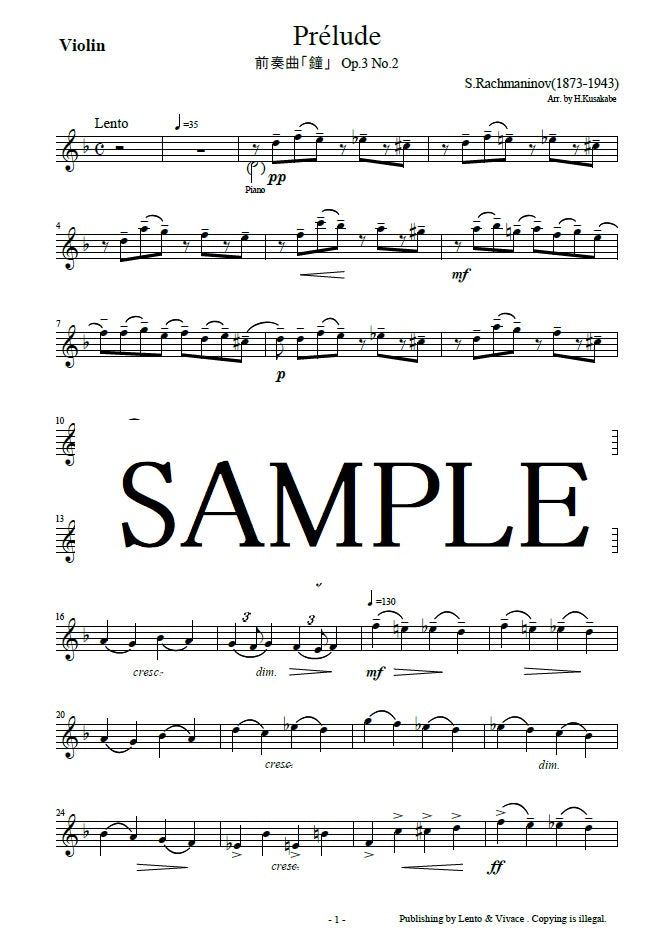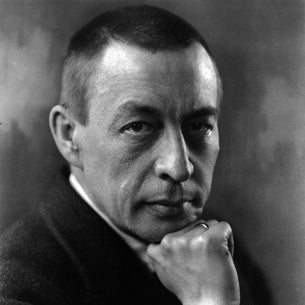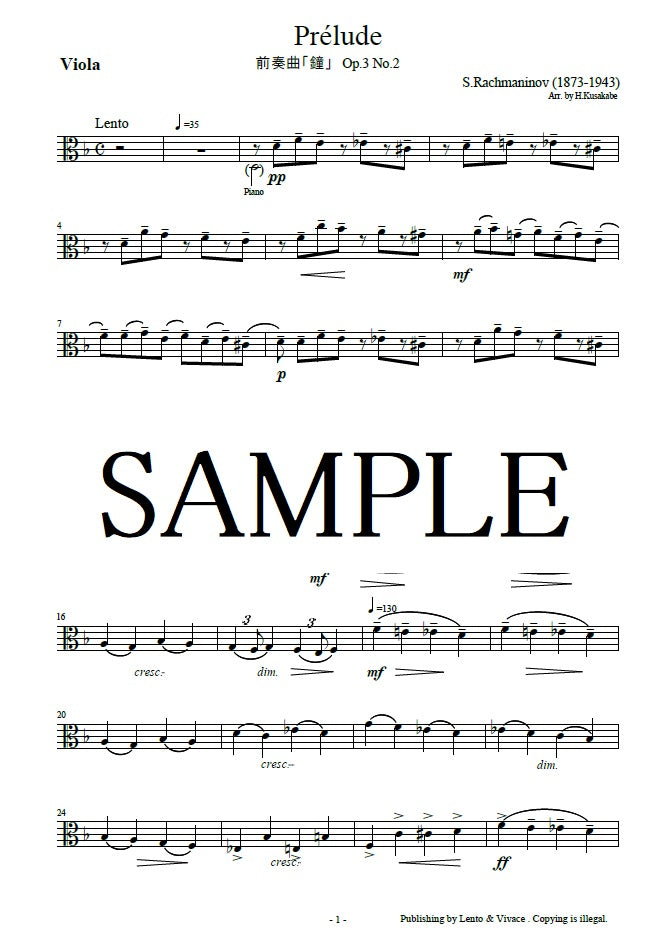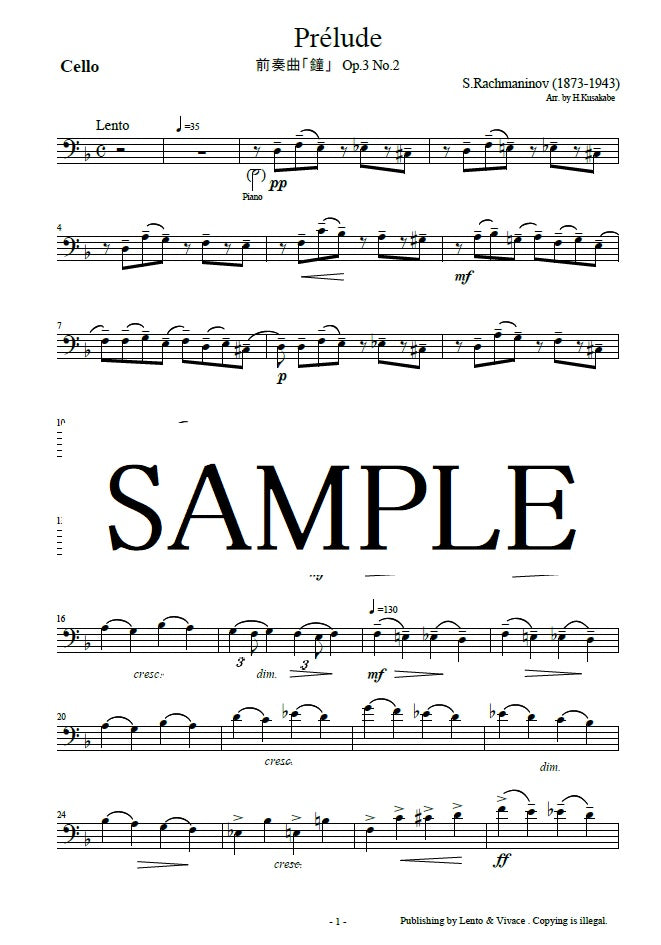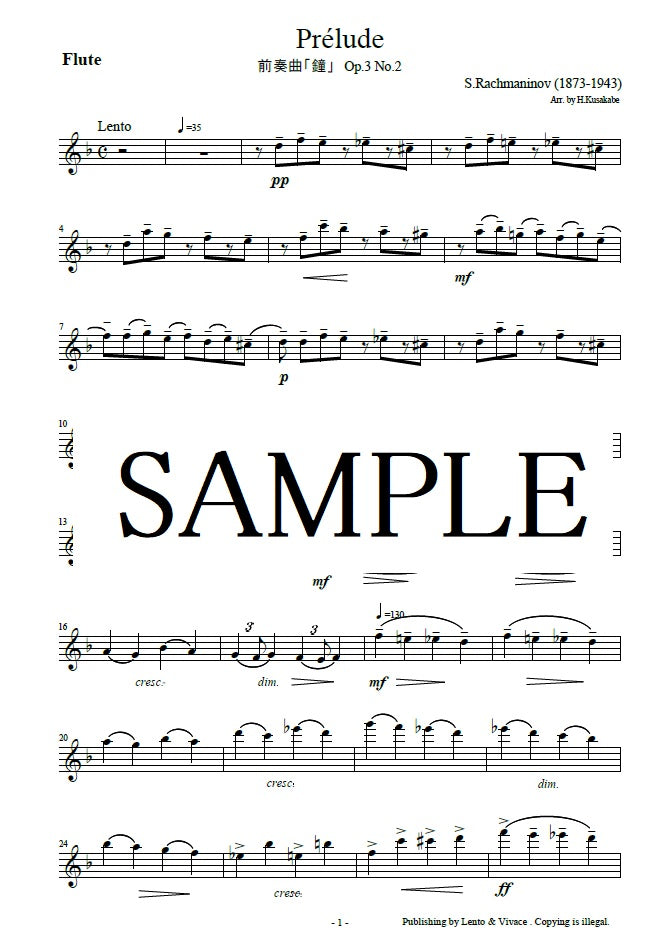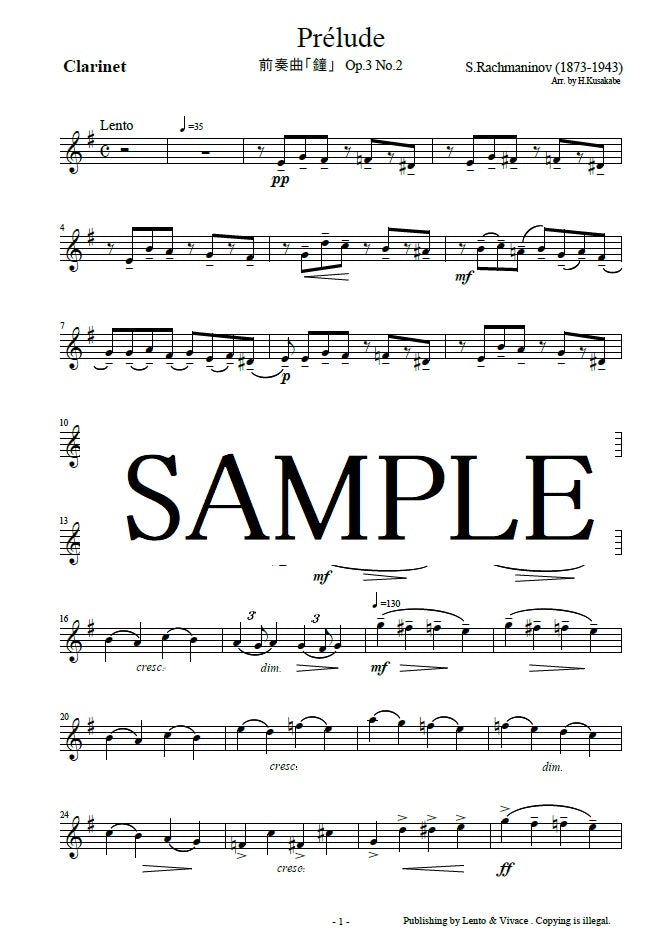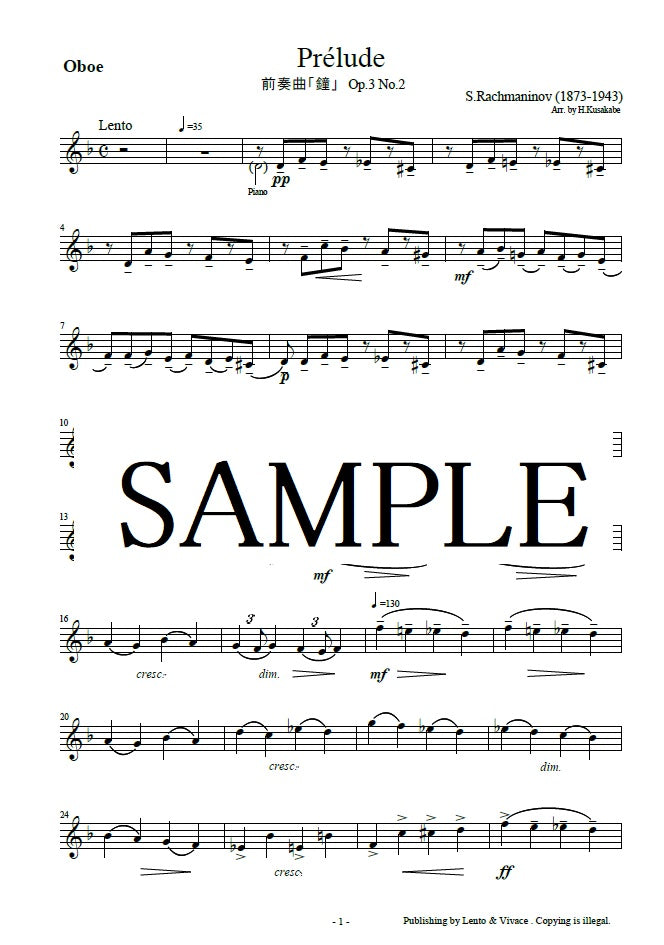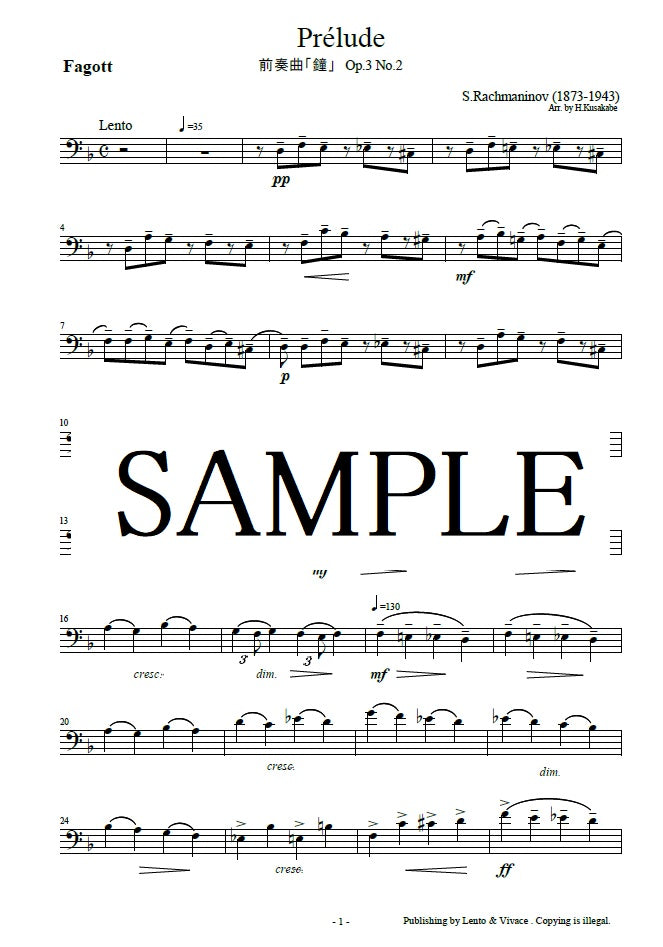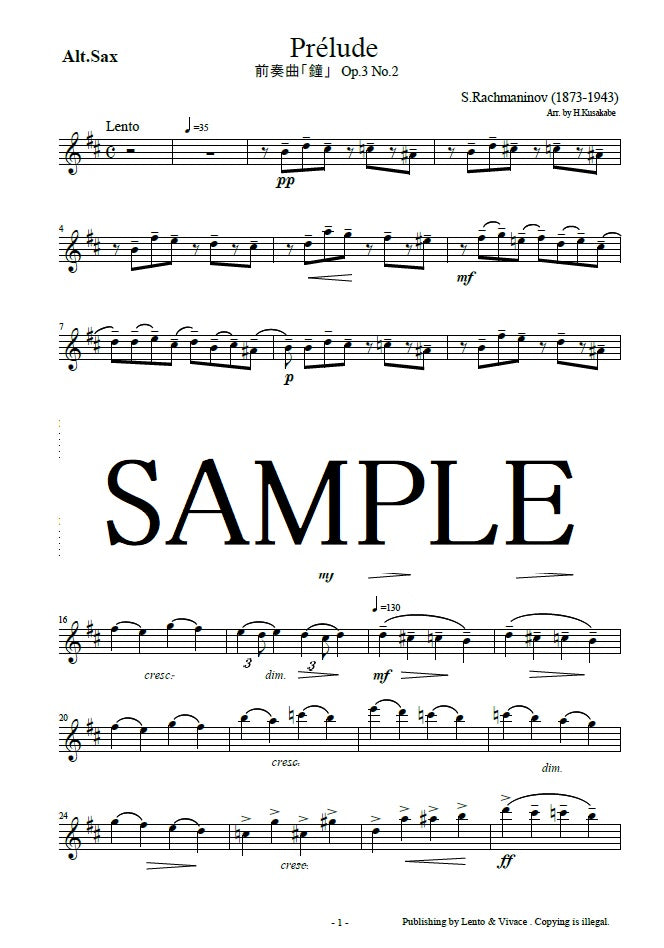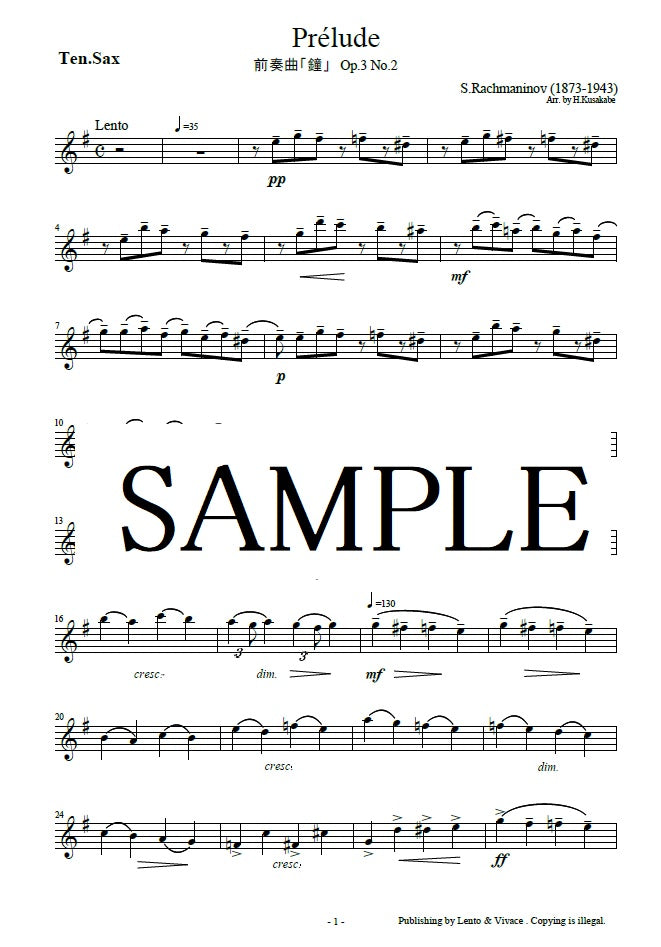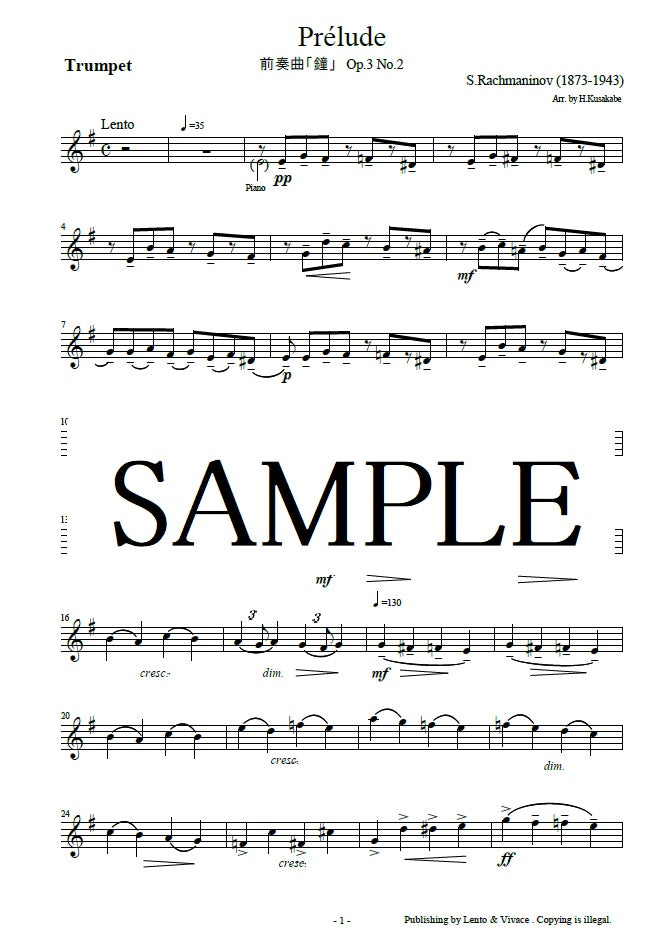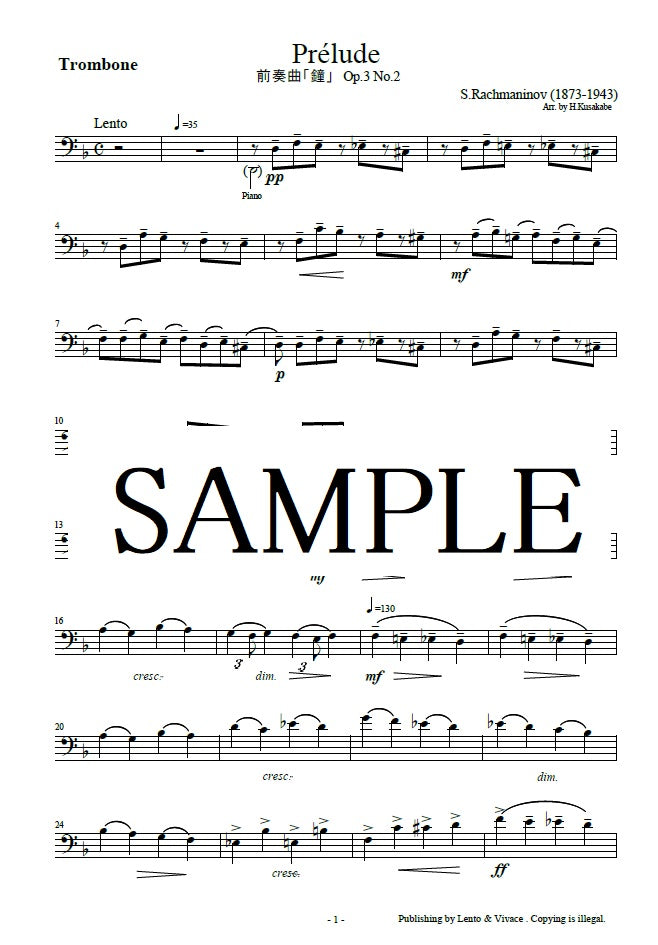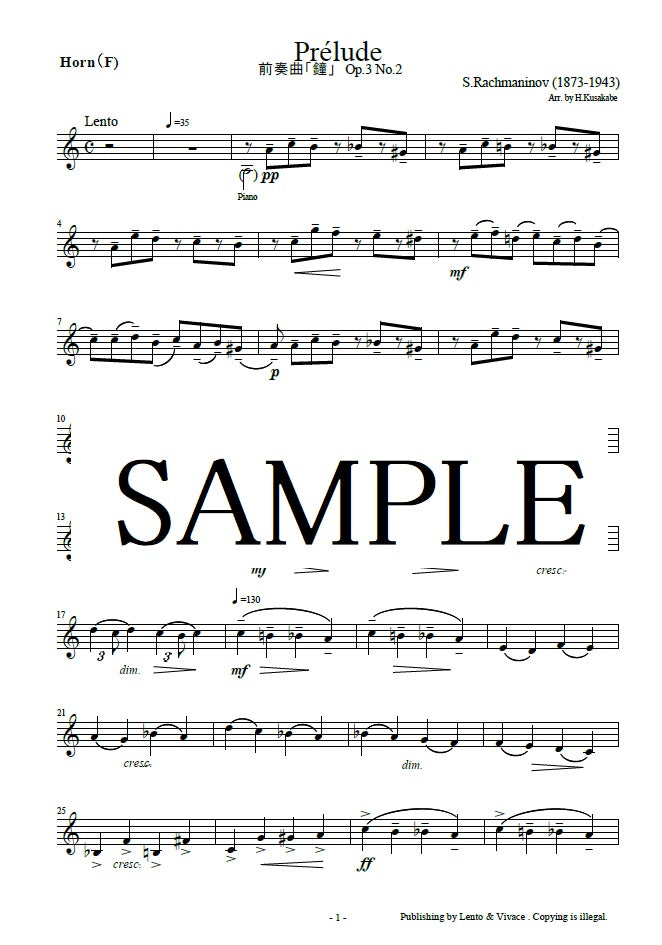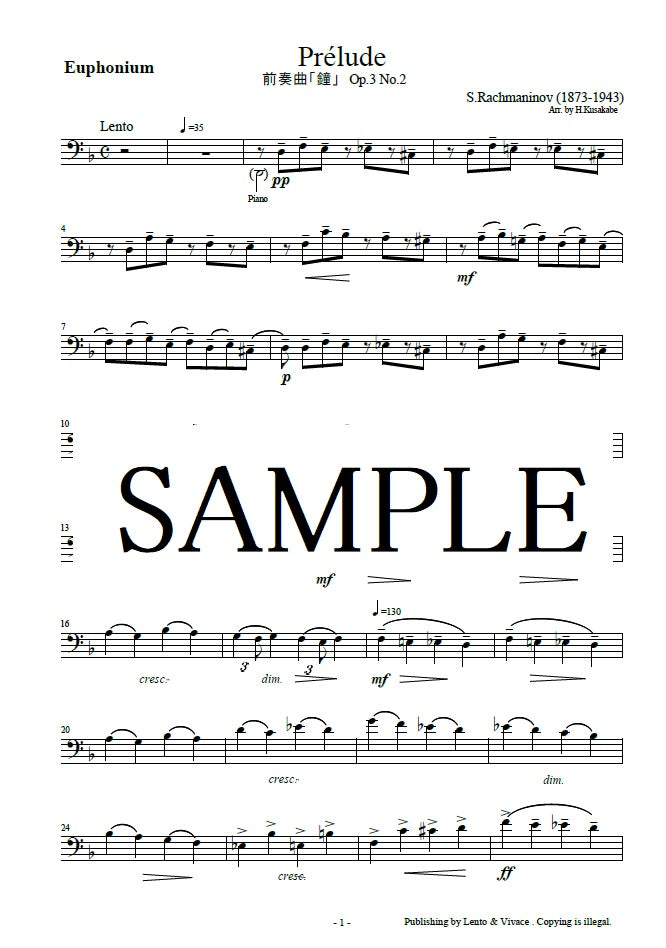Rachmaninoff "Prelude Bell Op.3-2"
Rachmaninoff "Prelude Bell Op.3-2"
Couldn't load pickup availability
Rachmaninov is a composer, pianist and conductor from the Russian Empire, born in 1873. He completed Symphony No. 1 in 1895 and premiered in St. Petersburg two years later in 1897, a record-breaking blunder. (There is also an interpretation that it depends on the ability of the conductor, not the problem of the work itself.) This failure caused Rachmaninoff to suffer from memory weakness and complete loss of self-confidence, and he was almost unable to compose. Through his efforts while receiving medical treatment to recover from this setback, from 1900 to the following year, he completed Piano Concerto No. 2, which is said to be his most masterpiece. It premiered on his own piano performance, but this time it was a huge success, winning the Glinka Award for this work and establishing his reputation as a composer. Rachmaninoff lived a life that was never smooth sailing.
This prelude "Kane" is the second piece of the fantastic piece collection, which was completed in 1892, the same year after graduating from the Moscow Conservatory, with a total of five piano solo pieces. At the celebration of the Moscow Electric Expo held on October 8, 1892, Rachmaninoff himself performed the song, and the performance was highly evaluated as "causing enthusiasm". After receiving it, it has long been loved as a synonym for Rachmaninoff.
Many of you may know that Mao Asada of women's figure skating used it as a free program song for the 2009-2010 season.
In this arrangement, both the accompaniment of a synthesizer orchestra that expresses the mystery of this song and the accompaniment of a simple piano only are attached. Enjoy the pleasure of playing with the fully open fortissimo with two types of accompaniment with completely different atmospheres.
* The original song has accompaniment in C sharp minor (# 4), but it is easy to play and arranged in D minor (♭ 1).
Playing time is about 4 minutes and 30 seconds
Audition of accompaniment sound source Piano version (about 1 minute)
Audition of accompaniment sound source Synthe Orch. Version (about 1 minute)
set content
- Sheet music PDF data ① Solo score ② Accompaniment score (total score with solo score)
- Accompaniment sound source MP3 data
¥500(JPY)
